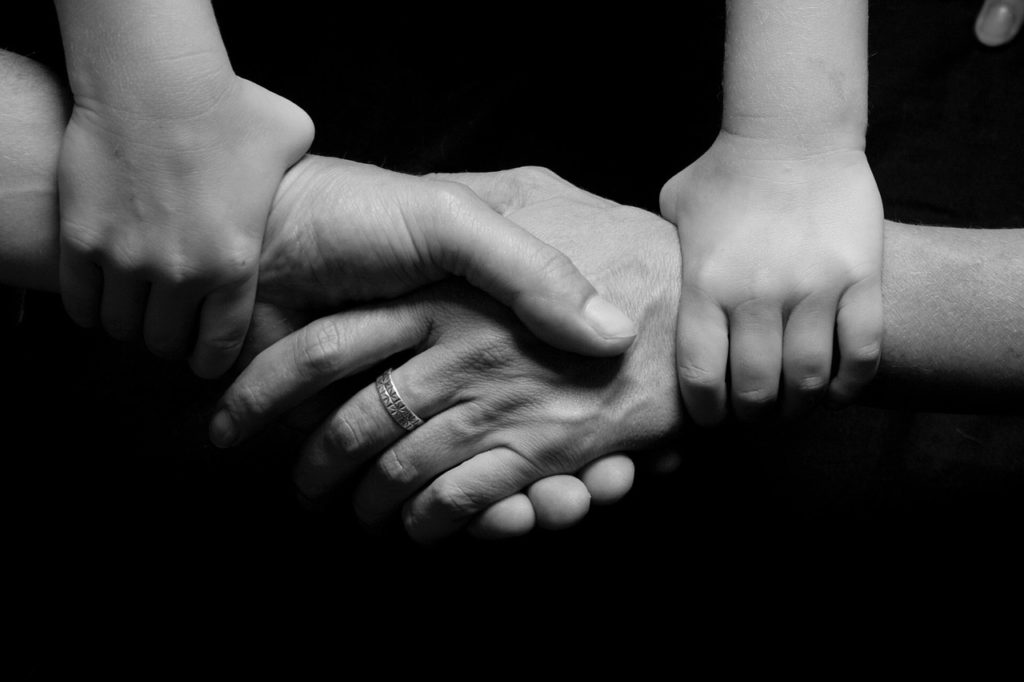A recent study, published in the International Journal of Nursing Studies, investigates Danish mental health outcomes associated with the Open Dialogue approach to psychiatric treatment. The results of the register-based cohort youth study suggest that Open Dialogue may lead to a long-term reduced risk of emergency psychiatric hospitalization as well as reduced utilization of general healthcare services.
The researchers, led by Niels Buus at the University of Sydney, write that “while the relationship between social factors and mental health is well-established, biopsychosocial interventions tend to focus on psychological and pharmacological mechanisms rather than extending social support and community intervention.”

Open Dialogue is an approach to psychiatric treatment that emphasizes collaboration, transparency, and non-directive interventions involving a variety of healthcare professionals as well as family and other community members. Open Dialogue has been proposed as an alternative to standard psychiatric models, which keep the activities of healthcare professionals separate and often engage in hierarchical decision-making based in the assumed expertise of psychiatrists, nurses, and therapists.
“Therapists strived towards adopting an open-ended, non-directive, and non-pathologising language-use and, if possible, all significant decisions, such as initiation of medical treatment or hospital admission, were discussed collaboratively at length during the meetings to optimize transparency in the process,” the research team explains.
“Treatment and treatment planning were also needs-adapted, and various other methods of mental health intervention were organized in an integrated treatment process. Network meetings usually took place in the patient’s home, but could also take place at the patient’s school, workplace, or at the municipality.”
Although the approach, which originated in Finland, has reported extremely promising outcomes for early and collaborative treatment of psychosis and has begun pilot program implementation in the U.S., one criticism has been the lack of diverse data samples to support Open Dialogue’s international efficacy.
In the current study, Buus and colleagues examined data from several national Danish registries, comparing Open Dialogue interventions with standard models of psychiatric treatment for at-risk youth, aged 14-19. The researchers compare the two models across several outcomes, including patients’ utilization of psychiatric health services and general practitioner services, as well as suicide attempts and other health and social status-related measures.
Although the Open Dialogue patients initially showed a 24% higher rate of outpatient contact after one year compared to the standard model group, this number dropped at subsequent follow-ups. Emergency psychiatric assistance at the one-year mark was 79% lower than the comparison group, which eventually leveled out to 52% lower at the ten-year mark.
For general practitioner services, the OD group showed a 10% lower utilization rate than the comparison group, which increased to 15% lower after ten years. The authors offer a speculative explanation of these results, stating “it is possible that that the intervention influenced the illness behavior of the young recipients and their social network; potentially they might have learned to access and use psychiatric emergency services differently.”
“The long-term reductions in psychiatric emergency treatment and general practitioner services indicate that ‘overuse’ of health care services was avoided and that the probability of ‘over-medicalization’ of young people experiencing mental health problems was minimized.”
The research team found that the OD group experienced positive changes in employment status at later follow-up times, and they suggest that this may be a result of better social integration. Interestingly, Buus and colleagues found no statistically significant difference between the suicide attempts of the two groups or the length of psychiatric hospitalization. They note, however, that this could be the result of the “limited scope of the intervention, which was not specifically targeting these issues, or the sample size.”
Buus and colleagues add, in this study, to the pool of data supporting Open Dialogue’s efficacy as an alternative psychiatric model. The original Finnish studies were promising, but it remained inconclusive whether the model could translate effectively to a different sociocultural context.
Although the current findings did not show statistical improvement across all outcomes and this study was not experimental, preventing a demonstration of causality, the significant reductions in emergency psychiatric and general practitioner service utilization do suggest that Open Dialogue may be both more cost-effective and more effective at encouraging communal forms of caretaking.
****
Buus, N., Kragh, J. E., Bojesen, A. B., Bikic, A., Müller-Nielsen, K., Aagaard, J., & Erlangsen, A. (March 01, 2019). The association between Open Dialogue to young Danes in acute psychiatric crisis and their use of health care and social services: A retrospective register-based cohort study. International Journal of Nursing Studies, 91, 119-127. (Link)















You could end a great deal of “the need for future services” by putting a stop to forced treatment. This reduction that Open Dialogue approaches might bring can only be relative so long as much “treatment” is non-voluntary anyway, non-voluntary being unwanted. There’s an easy way to reduce “the need for future services” when those services are involuntary, abolish, that is, outlaw, involuntary hospitalization. By involuntary hospitalization I mean hospitalization that can only be hospitalization in a figurative sense seeing as it is literal imprisonment.
Report comment
“You could end a great deal of ‘the need for future services’ by putting a stop to forced treatment.” Very true, Frank. Once I’d been weaned off of the psych drugs, read all my medical records, researched into the fraud of the psychiatric industry and big Pharma, I wanted nothing to do with the psychiatric fraudsters.
But my husband had been brainwashed by psych lunatics, which resulted in my first medically unneeded “forced treatment” hospitalization, by this now arrested criminal doctor.
https://www.justice.gov/usao-ndil/pr/oak-brook-doctor-convicted-kickback-scheme-sacred-heart-hospital
And his psychiatric “snowing” partner in crime, initially had hoped to institutionalize me for life, thankfully my insurance company refused to pay for that. But that criminal psychiatrist didn’t give up. She illegally listed me as her “inpatient” at a hospital I’d never been to before, for years.
She had me medically unnecessarily shipped to her for a second time, based upon a “medically clear” diagnosis, in the middle of the night. That time she was only able to convince the other doctors I had “adjustment disorder,” so her forced drugging was limited to a bad reaction to an antipsychotic, which turned into forced treatment for a non-existent UTI.
Once a health insurance company informed me that the criminal psychiatrist had been inappropriately listing me as her “outpatient” at that hospital I’d never been to, I called and asked her to stop incorrectly listing me as her “outpatient” at that hospital.
She thought she was clever to then start fraudulently listing me as her “outpatient” at the hospital that I’d had the misfortune of meeting her. She even had her lackeys from that hospital call me and ask why I’d missed an appointment. They were embarrassed to learn I’d never made an appointment with her, nor would I ever, and that I’d moved out of state.
The criminal psychiatrists do work very hard, breaking lots of laws, trying to create “the need for future services,” via medically unneeded forced treatments. I agree, involuntary “treatment” should be made illegal.
Report comment
It sounds like Kanye West endured forced treatment. He is speaking out about it now and said he wants to see that changed. It sounds like he believes in his diagnosis of Bipolar but in his recent interview with David Letterman, Kanye described his psychiatric treatment as inhumane and primitive.
https://ca.askmen.com/news/health/kanye-west-speaks-out-on-his-bipolar-diagnosis-and-treatment.html
Report comment
Removed for moderation.
Report comment
Oh my goodness, we can’t have this going on! Whatever will happen to all the jobs held by people who are responsible for diagnosing and locking people up in the system. If people start getting well and not coming back for “services” this could lead to horrible problems for psychiatry, the “mental health” system, and the drug companies! We’ve got to do our part to make sure that all these jobs aren’t done away with because of those pesky people who believe that they can get well. How dare they think that they can run their lives better than psychiatrists and drug reps, they don’t have M.D. behind their names.
Report comment
Micah Ingle,
How much in Psychiatric Services do we need today? And how much more are you suggesting that we continue?
I would say that the correct answers are always zero.
My response to Psychiatric Services would always be the middle finger.
And now if you mean forced treatment, that should always be cause for a revolt and for Crimes Against Humanity prosecution in the International Court.
https://en.wikipedia.org/wiki/Doctors%27_trial
Report comment
He strikes me as a young man who may not have a lot of experience out in the world of supposed “mental health”. We have an opportunity to educate people here that post on MIA. I am usually willing to give a person a couple of chances for the light bulb to come on before I begin my slash and burn campaigne against them. It takes time for people to get their heads around thinking about things in a new way, if they truly are open. And at least he’s writing about Open Dialogue, which gives me some hope that he’s open to better ways of dealing with people who experience emotional and psychological pain and issues.
Report comment
I’m curious what you were hoping to see here. Not every report on an innovation or other perspective in psychology is going to be focused on an outright dismissal of what is or what has been. Even manifestos need citations…
Report comment
“The original Finnish studies were promising, but it remained inconclusive whether the model could translate effectively to a different sociocultural context.”
It would be difficult in a culture where the reaction to anyone showing emotions is “have you taken you meds today?”
Report comment
A very encouraging study. Thanks for sharing this,, Micah. It would have been great to know exactly how many young people were involved in the Open Dialogue therapy, versus the control group. The involvement of our social network in our therapy is so fundamental to being heard, accepted and loved.
Report comment